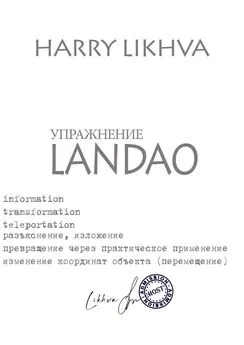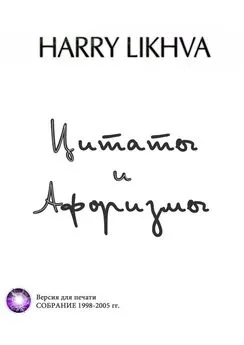Harry Turtledove - Give me back my Legions!
- Название:Give me back my Legions!
- Автор:
- Жанр:
- Издательство:неизвестно
- Год:неизвестен
- ISBN:нет данных
- Рейтинг:
- Избранное:Добавить в избранное
-
Отзывы:
-
Ваша оценка:
Harry Turtledove - Give me back my Legions! краткое содержание
Give me back my Legions! - читать онлайн бесплатно полную версию (весь текст целиком)
Интервал:
Закладка:
Varus had hoped that would make Segestes feel better, but it didn’t seem to. The German heaved a sigh. “No, I suppose he is not that kind of beast,” he allowed. “That does not mean he is no beast. He takes what he wants and then, once he has it, he puts it on a shelf and forgets about it. Not so bad, if you talk about a fancy pot or a silver statuette. But if a girl sits on a shelf and gathers dust, it is cruel, not so?”
Plenty of girls gave their all to men who got bored with them afterwards. Varus didn’t think Segestes wanted to hear that. “I hope it will turn out for the best in the end,” the Roman said: one more sentiment that sounded good and cost him nothing.
“I always hope for this.” Segestes’ slow, deliberate Latin seemed strangely impressive. “But what I hope for and what I expect are two different things.” He sighed once more. “I cannot persuade you. I cannot, uh, convince you. All I can do is to say again, Try not to be a duck, your Excellency.” He sketched a salute and strode out of the small dining room with no more ceremony than that.
Aristocles appeared a moment later. Varus nodded, unsurprised. “Were you listening?” he asked.
“Of course not, sir!” The pedisequus sounded shocked: so shocked, Varus didn’t believe him for a heartbeat.
“He does go on, doesn’t he?” the Roman governor said.
“And on, and on,” Aristocles agreed, not caring that he’d just given himself the lie. “What was that nonsense about ducks? I couldn’t follow all of that.”
“Don’t worry - it’s not worth following. But he really is fond of his daughter.” Varus shook his head in wonder. “You never can tell.”
“With Germans, you never can tell about anything,” Aristocles remarked.
“True,” Varus said, and then wished he hadn’t.
XIII
Caldus Caelius’ caligae clunked on the timbers of the bridge across the Rhine. “One more time,” he said to nobody in particular. “Maybe we’ll finish the job this year. Then we can go do something else.”
“Or settle down in Germany for garrison duty,” said the man marching on his left. “Wouldn’t that be fun?”
“Sometimes I think so,” Caelius answered. “Sometimes I’m not so sure.
“Silence in the ranks!” a military tribune bawled. Caelius marched on without a word. Sooner or later - probably sooner - the senior officer would find something else to worry about. In the meantime, Caelius didn’t feel like getting screamed at.
His hobnailed marching sandals stopped clunking and started thumping: dirt underfoot, not planks. “Germany,” the legionary beside him said. “Again.”
Both men’s eyes darted now left, now right. Neither was foolish enough to turn his head and risk drawing the tribune’s notice. Caldus Caelius took an extra long stride to avoid a horse turd in his path. The governor and the cavalry had gone on ahead of the legionaries . . . and left souvenirs for the unwary.
A couple of ranks behind Caelius, somebody swore sulfurously. The tribune barked at him. “What’s that all about?” whispered the man to Caelius’ left.
“He must’ve stepped in the shit,” Caelius whispered back. “I saw it coming, so I missed it. He must not have.”
“Is that why you hopped? I thought something went and bit you,” the other legionary said.
“Not yet. Give it another month,” Caelius answered.
The other man grunted. Quinctilius Varus had started them for Mindenum early. The trees that shed their leaves were just beginning to get them back. Germany seemed to have fewer mosquitoes than Italy did. But it had more midges and gnats and biting flies. When spring was a little further along, they would rise from the swamps and marshes in buzzing myriads. Spring brought forth all kinds of life, including the unwelcome.
Thinking about the unwelcome naturally made Caldus Caelius think about Germans. “Wonder if the governor’s tame barbarian’ll come round again,” he murmured.
“Huh!” the other legionary said - a book’s worth of commentary packed into what wasn’t even a word. All the same, the soldier went and amplified it: “Did you ever see a German who was really tame?”
“There’s the one who keeps coming to tell the governor what a rotter the other savage is,” Caelius said. “If he’s tame, the other fellow isn’t. And if he isn’t, the other bugger is.”
“Or maybe neither one of ‘em is,” the other Roman replied. “I say they’re both stinking barbarians, and I say to the crows with ‘em.”
“That you running your mouth, Caelius?” The tribune rasped like a saw blade hacking through marble.
“No, sir.” Caldus Caelius lied without compunction or hesitation.
“Well, somebody cursed well is.” The military tribune was half mollified, but only half. “Whoever it is, he’d better shut up if he knows what’s good for him.”
Caelius didn’t respond to that. If he had, the centurion would have suspected he had a guilty conscience. He did, but he also had the sense not to put it on display.
The legionaries plunged into the woods. If you wanted to go any-where in Germany, you had to go through the forest or through mud or, more likely, through both. Because so many of the trees were pines and spruces and yews, the air took on a faint spicy scent. That odor was almost the only thing about the woods Caelius liked.
He had a javelin in his right hand. He also unobtrusively made sure his gladius was loose in its sheath. He didn’t think the Germans would try to ambush the legionaries so close to Vetera, but you never knew. They might try an ambush here just because they guessed the Romans wouldn’t expect it.
Several soldiers in front of him were checking their weapons, too. After you’d gone into Germany a few times, you realized every tree had eyes and every bush had ears. Legionaries who took stupid chances usually regretted it - but not for long.
A raven high up in a spruce croaked gutturally. “Hear that?” the man next to Caelius said. “It’s going, ‘Feed me. Feed me.’ “
“We aren’t supposed to do so much fighting now,” Caelius said. “This is supposed to be a working province.”
“Now tell me one I’ll believe,” the other Roman said. “So this is a province like Gaul, say? Then I can walk around wherever I please in a tunic, and maybe a cloak if it’s chilly outside? I don’t need any armor?” He shrugged to make his chainmail jingle. “I don’t need any weapons?” Like Caelius, he carried javelins and thrusting shortsword, as well as a leather-faced wooden shield with an iron boss in the center and bronze edging.
Caldus Caelius had to laugh. “I said it was supposed to be that kind of province. I didn’t say it was yet.”
“Good thing, too. Only place in Germany where I can walk around in my tunic and not worry about getting scragged is inside the rampart at Mindenum. Oh, yeah, and I guess in Aliso and the other riverside forts, too.”
“Silence in the ranks!” the tribune bellowed again. “Caelius, this time I know it was you! Didn’t making centurion give you any extra sense?”
The ordinary soldier marching next to Caelius snickered - he hadn’t got caught. Caelius contrived to step on his toe, which not only made him bleed but also made him swear. The military tribune pounced like a wildcat jumping a field mouse. Caelius didn’t laugh . . . not on the outside, anyhow.
A gray-bearded warrior, his face drawn and grim, approached the funeral pyre torch in hand. The pale corpse on the pyre looked like a thin, wasted version of him, and was in fact his younger brother. The dead man’s spear and dagger and a shortsword he’d captured from some legionary lay on his breast.
When the graybeard touched the torch to the pyre, the wood began to blaze at once. Standing in the crowd of mourners with his head bowed, Arminius caught the odor of burning butter. The Romans used olive oil, sometimes perfumed, to make sure their pyres burned strongly. Butter worked just as well, as it also did in cookery.
“Alcus was a worthy fighter. No man of the Chauci could ask for greater praise,” his brother said, stepping back from the flames.
A low murmur of agreement ran through the crowd. Arminius hadn’t known Alcus alive, but added his respects now that the man was dead. He didn’t want an affronted ghost dogging his tracks. A man could fight the Romans. How could anyone hope to fight a ghost?
“He would have gone to war once more against the invaders of our fatherland,” Alcus’ brother continued. “Now his spirit will watch to make sure we fight as fiercely as he would have.”
More murmurs of approval rose. Again, Arminius joined them. Leaping flames engulfed Alcus’ body. The stink of charred meat mingled with the odors of butter and wood smoke in the air. Coughing, Arminius sidled away so he was upwind of the pyre. Beside him, his father was doing the same thing. So were the Chauci, so the two Cherusci didn’t stand out. All the mourners swung to the left.
How long had the Chauci been burning bodies in this meadow? A long time, judging by the number of turf mounds that rose here. Arminius had seen that the Romans raised stone memorials above their dead. Like any German, he thought those oppressively heavy. A ghost might not be able to get out from under one of them. Cut turves were better.
And then, suddenly, he forgot about Alcus, forgot about the sorrow he was supposed to share with his hosts. He nudged his father and loudly whispered, “Turves!”
“Turves?” Sigimerus echoed. “What are you talking about?” His tone suggested he would clout Arminius if he didn’t like the answer he got. He’d done that often enough when Arminius was smaller.
But Arminius repeated, “Turves!” When the Romans wanted to remember something, they could write it down and preserve it as if they were smoking pork. Most Roman officers had their letters. Only a handful of men in Germany did, to write Latin rather than their own tongue; Arminius wasn’t one of them. When he needed to hold something in his memory, he spoke to make his ideas stick - and to pass them on to someone else so they wouldn’t stay in his head alone. He went on, “If we pile them up to make a rampart at that spot we found coming here ...”
“Ah! I see what you’re saying!” Sigimerus sounded as excited as he did.
Several of the Chauci sent them scandalized glances. Arminius was embarrassed; he wasn’t behaving as a mourner should. “Where are your manners, guest among us?” a big man rumbled. His tone suggested there might be bloodshed if he didn’t like the answer he got.
“My apologies,” Arminius said. “I just had a notion that will help us in our fight against the Romans. In my excitement, maybe I spoke louder than I should have.”
“You did.” The big man nodded. “But that is a good reason for bad manners. I say no blame sticks to you.” He eyed his fellow tribesmen as if daring them to disagree. No one did.
Another man was not so easily pacified. “You say you want to do this and that and something else to the Romans,” he told Arminius.
“I do,” Arminius replied. “And I say it for the best reason: it is true.”
“You say it,” the man from the Chauci repeated. “But is it true? Or are you a spy for them? You spent last summer in their stinking camp! Are you a proper German, or are you the Romans’ lapdog?”
“I am a German. Never doubt it,” Arminius said. “If you fish for trout, don’t you put a fat worm or a cricket or a bit of meat on your hook? Of course you do. The bait will help you catch your fish. I am the bait that will help Germany catch the Romans.”
Читать дальшеИнтервал:
Закладка:







